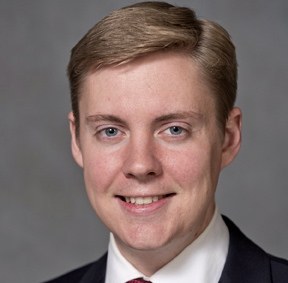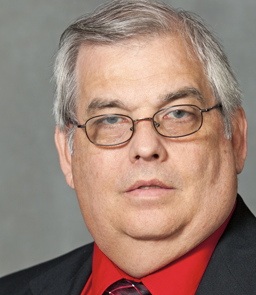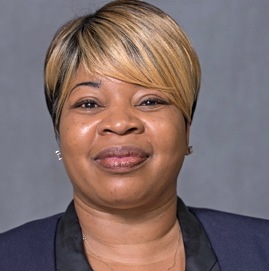Three GOP candidates facing off in Arkansas House District 57 primary
by February 23, 2016 1:18 pm 700 views

Republicans Jimmy Gazaway, Ronnie Spence and Shawn Strouss of Paragould will face off March 1 in a state House primary in an open seat that both parties are seeking to win this fall.
The district covers the Paragould and Oak Grove areas in Greene County; and is represented by State Rep. Mary Broadaway, D-Paragould. Broadaway announced last year she would not seek another term in office.
The winner of the Republican primary will face Democrat Frankie Gilliam of Paragould in the Nov. 8 general election. If none of the candidates receive 50% during the March 1 primary, the two top finishers will advance to a March 22 runoff.
Talk Business and Politics recently asked the three GOP candidates a series of questions about issues facing the district.
BACKGROUND
Jimmy Gazaway
Graduated from Paragould High School in 1999, received a bachelor’s degree in political science (Cum Laude) and was awarded Outstanding Graduate in Political Science in 2003 from Arkansas State University and received a juris doctorate from the University of Arkansas at Little Rock School of Law in 2006. Since 2006, I have been a practicing attorney in private practice in Paragould where I have been engaged in the general practice of law handling a wide variety of legal matters.
In 2008, I became a deputy prosecuting attorney for the 2nd Judicial District of Arkansas and presently continue to serve. In that capacity, I have prosecuted thousands of criminal cases and tried numerous jury trials, including murder, rape, manslaughter, negligent homicide, and many other serious felony cases. I also serve as counsel to three local municipalities – Trumann, Harrisburg, and Weiner.
Ronnie Spence
Graduated from Paragould High School in 1981, with two years of study at ASU-Jonesboro. He re-enrolled in August 2015 and will enroll during the summer semester. He is a certified phlebotomist and works for Andy Frain Services on the ASU-Jonesboro Campus.
Shawn Strouss
I’ve had an extensive career in corporate America, as well as, the nonprofit sector, including executive director of LifeHouse Ministries Inc. since 2008.
QUESTIONS
TB&P: What do you see as the state government’s role dealing with economic development, especially with the proposed constitutional amendment (SJR 16) which would remove the limitation of the principal amount of general obligation bonds issued under Amendment 82 (economic development super project amendment)?
Gazaway: I believe that ensuring the prosperity and quality of life of its citizens should be among the chief goals of any state government and the way to ensure prosperity and quality of life for the citizens of Arkansas is to continue to grow the economy and increase job opportunities for our citizens. The fact is that we live in a global economy where employers can choose to locate anywhere in the world. Arkansas must be competitive with other states and countries when it comes to encouraging companies to locate and do business in Arkansas; otherwise, we are going to be left behind. In order to be competitive, we have to be able to offer the same or more incentives than our neighboring states, which we have been unable to do in the past due to constitutional limitations. I support SJR 16 and believe that it will provide much needed flexibility—e.g., removing limitations upon financial incentives and expanding by definition the types of projects eligible for incentives–to our state and local governments in order to help us land major economic development projects —such as Big River Steel in Mississippi County.

Spence: Our focus should be on Arkansas companies first. We should be investing in Arkansas small to medium size businesses, that started in Arkansas, that stayed in Arkansas, and will remain in Arkansas. Our secondary focus can then be companies interested in coming to Arkansas. Studies have proven incentivizing companies to move to a state have a short term and even negative effect. The states most successful in attracting and keeping businesses have created a low tax, low regulation business environment.
Strouss: Each district should focus on their residents and the needs associated with their community. We need to continue to make our district appealing to new business as well as strengthening the current businesses.

TB&P: What is your opinion on general improvement funding in the state? Opponents have called the funding wasteful spending while supporters have remarked it has helped groups that have had trouble getting funding for projects.
Gazaway: I support funding local projects from general improvement funds. There are many worthy and much needed local projects that regularly receive financial assistance from funds provided out of the general improvement fund – whether it is local police and fire departments, senior centers (in Paragould the Senior B.E.E.S.), city parks, or the local library. These local groups and projects are so important to our local community and we need to ensure that we have the resources available to fund their needs. I simply cannot see anything wasteful about returning money to local communities that is designated to be spent on worthwhile projects that are vital to our local community.
Spence: I think it needs to be eliminated, and all worthy recipients such as volunteer fire departments and other vital service providers should be included in the state budget.
Strouss: We have a lot of duplication of services which ends up being wasteful spending. Instead of creating new projects which will ultimately cost the people money, let’s work to see where we can cut spending, and perhaps use funds allocated to duplication of services to make general improvements.

TB&P: The 2016 campaign so far has seen a lot of back and forth on the debate between establishment Republicans and Tea Party Republicans. How do you believe you can bridge the differences in your party and run a strong campaign this fall in what most people believe is a battleground district?
Gazaway: Arkansans have a reputation for being pragmatic in their approach to solving problems. As Republicans, we have to stay true to our principles but at the same time be pragmatic in solving our problems. In order for our government to function, we have to find as much common ground as possible and realize that we are all in this together. At the end of the day, gridlock simply means that everyone loses. I believe that effective communication with both sides is the key to finding common ground and moving forward, and I believe that I can communicate effectively with both sides. As far as running a strong campaign in November, I have been very fortunate to enjoy very broad support—from “tea party” Republicans, “establishment” Republicans, and even Democrats. I have “democrats” and former “democrats” who are supporting me, not because we agree ideologically on the issues, but because they know that I am a reasonable person who is going to do what is right and what is best for Arkansas and for District 57.
Spence: I’ve come to realize that most people regardless of their politics, race, or religion wants pretty much the same thing: safe neighborhoods, good schools, low taxes, low regulations. And that government play a minimal role.
Strouss: My focus is “We the People” and restoring the sovereignty of our State.
TB&P: Paragould is the home of two school districts, not to mention several colleges and university campuses (Arkansas Northeastern College, Arkansas State University, Black River Technical College and Crowley’s Ridge College). How do you see the role of those colleges in the debate over workforce training?
Gazaway: I believe that workforce training is vital to our continued economic growth and development. District 57 is made up of the cities of Paragould and Oak Grove Heights and the southern part of Greene County. Greene County ranks in the top 4% in the nation in manufacturing jobs per capita. We have several large manufacturers located in Greene County, specifically ARI (American Railcar Industries), Tenneco Automotive, Axis, Nidec Motor Corporation (formerly Emerson Electric), and many more. These companies employ thousands of people in our community. The colleges mentioned all play a role in preparing individuals for our workforce. Black River Tech currently partners with industries through the Industrial Training Center to provide workforce training specific to the needs of our industries. I would like to see more workforce training and specific partnerships with all of our universities, not just Black River Tech. It is important for continued economic development in our community for employers to know when they are looking to locate here that we have these resources available to supply them with a highly trained workforce.
Spence: It is proven that government has the uncanny ability to make something relatively simple complicated. I would encourage businesses to communicate with our schools and these two work together, to develop, train and recruit specific workers for specific jobs. There is no need for a layer of government bureaucracy in between.
Strouss: I do not see this as a debate. To my understanding workforce training is provided to those who receive state funding and due to receiving those funds client must receive on the job training through local non-profits.
TB&P: U.S. 49 and U.S. 412 are two major highways that run through Paragould, linking the town with Jonesboro, Pocahontas and Missouri. Yet, like most highways, they are in constant need of repair. What do you believe is the role of state government on the highway issue, especially with funding concerns?
Gazaway: I believe that adequately funding infrastructure-highways, roads, and bridges-is one of the primary obligations of state government, as it is vital for travel, commerce, and economic development within our state. The issue is really one of making sure we qualify for all of the federal matching funds that are available without taking money away from priorities such as education. Ultimately, depending on revenues-which will undoubtedly suffer if we discontinue the current Medicaid expansion–hard choices will have to be made related to how we continue to fund our highways at an adequate level without taking money away from other priorities–specifically education. Where the money will come from for the highways is a matter of concern and I would be open to creative ways to fund highways with the caveat that we do not decrease funding for education.
Spence: Three and a half years ago, a half cent retail sales tax was approved by the voters, the voters was told, this would secure funding for highways for the next 20 years. Now, less than 4 years later they are asking for more money. It’s my belief that the highway department and/or any other state department or agency requesting an increase in their budget should be subject to a complete, and thorough forensic audit, to prove without a doubt the actual need for a budget increase.
Strouss: I believe each district should be responsible for their own maintenance.
